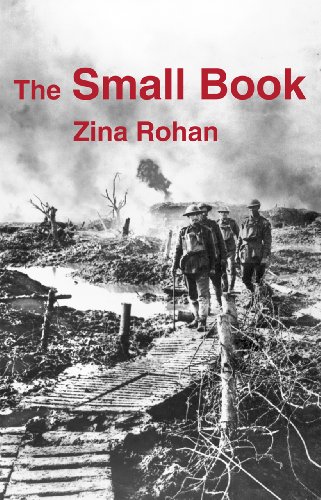The Small Book
In July of 1915, Private Jack Miller is executed for deserting while on active service. Private Ken Hoskins is assigned to the firing squad charged with carrying out the execution. The experience is so offensive and dehumanizing that he joins the Communist Party when he returns home to England. The execution of Private Miller does not only haunt Ken Hoskins but it also dramatically affects the lives of his two grandchildren Margaret and Roy decades later.
The story revolves around Margaret and Roy, the closest of siblings due to their unusual upbringing. Before they reach the age of ten, their father has died of a heart attack and their mother has gone crazy as a result. They are raised by their Aunt Pam, secretary to Harry Pollitt, the head of the Communist Party of Great Britain. Even though they are devoted to each other, their lives are very different. Margaret is a defense analyst and still lives in the apartment they grew up in; Roy is a famous photographer living in a mansion with his wife and son.
The book effectively deals with the fact that not all soldiers who were shot for desertion or other offenses during World War I were guilty. Some of those soldiers who were shot were probably suffering from posttraumatic stress disorder as a result of intense bombardment. In November of 2006 the British Parliament decided to pardon 306 servicemen who had been executed during World War I on moral grounds, and we learn from Margaret, as she studies the details of Private Miller’s case, that the evidence against him was not overwhelming as well.
Rohan puts a human face on the injustice and insanity of war through the execution of Private Miller. This well-written novel is worth reading for its thoughtful treatment of a controversial subject.










